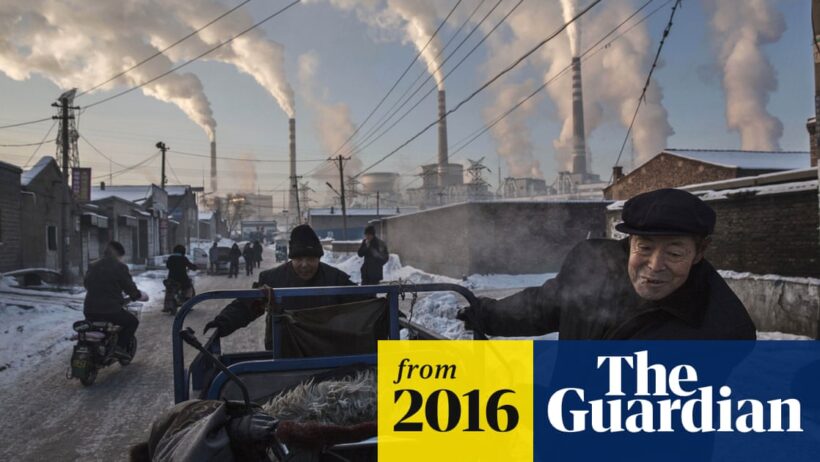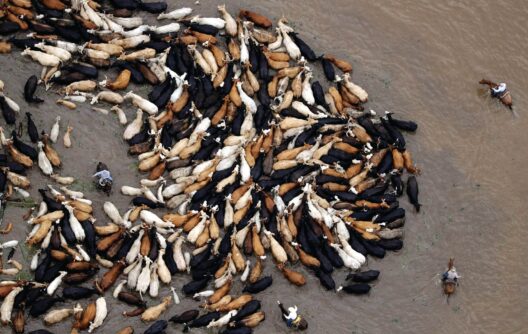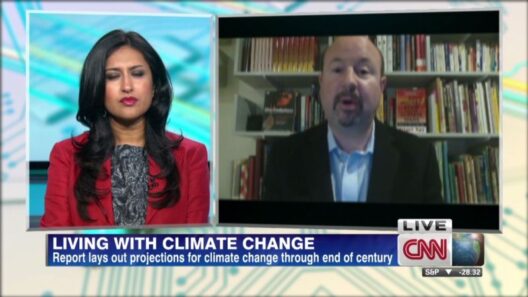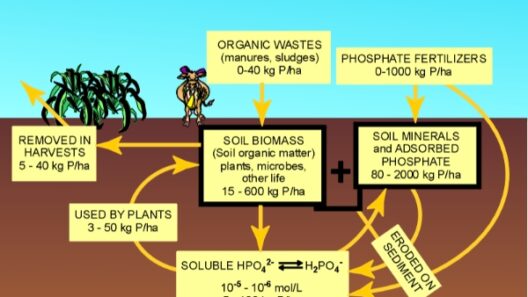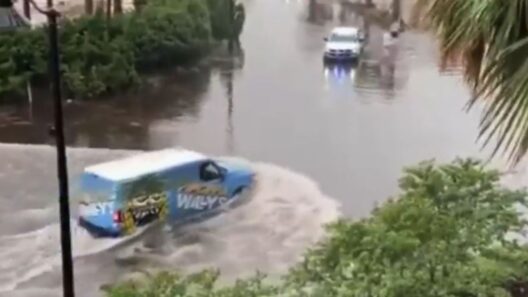Could global warming really cause the end of the world? As whimsical as this question may sound, it provokes deep contemplation about the trajectory of our planet’s climate and the future of humanity. In recent decades, scientific inquiry has increasingly underscored the potential catastrophic impacts of climate change, painting a grim picture of a world altered beyond recognition. To dissect this question, it’s vital to explore several dimensions: the mechanisms of global warming, its potential repercussions on ecosystems and human societies, and the philosophical implications tied to its catastrophic potential.
At its core, global warming refers to the gradual increase in the Earth’s average surface temperature due to the accumulation of greenhouse gases in the atmosphere—predominantly carbon dioxide, methane, and nitrous oxide. These gases trap heat from the sun, creating a “greenhouse effect” that is essential for maintaining life on Earth. However, anthropogenic activities, particularly the combustion of fossil fuels and deforestation, have significantly intensified this natural phenomenon, leading to what scientists term climate change.
As the planet warms, one primary concern arises: the destabilization of ecological and meteorological systems. The Intergovernmental Panel on Climate Change (IPCC) has outlined various scenarios where increased temperatures lead to extreme weather events—unprecedented hurricanes, prolonged droughts, and torrential floods. Such climatic extremities disrupt agricultural practices, threaten biodiversity, and endanger freshwater supplies. These consequences pose an insidious threat: a delicate balance is being unraveled, which may prompt cascading failures across global systems.
The question why global warming could potentially herald the end of the world hinges not on a single event but rather on a series of cumulative tragedies. Consider the phenomenon of sea-level rise, attributable to the thermal expansion of seawater coupled with the melting of polar ice sheets. Coastal cities like New York, Miami, and Jakarta are at risk of becoming submerged in the forthcoming decades. This displacement of populations, manifesting in climate refugees, could destabilize nations and sow discord across borders, leading to political and social upheaval.
Additionally, one cannot ignore the transformative impact of global warming on ecosystems. Ocean acidification, as a direct consequence of increased carbon dioxide absorption, endangers marine biodiversity. Coral reefs, often referred to as the “rainforests of the sea,” are experiencing bleaching events at alarming rates, threatening the myriad species that depend on these ecosystems for survival. As marine habitats collapse, so too does the intricate web of life that sustains billions of people through food chains and economies reliant on fisheries.
Moreover, global warming facilitates the spread of zoonotic diseases—those transmittable from animals to humans. As temperatures rise, many animal species, including vectors like mosquitoes and ticks, are expanding their geographic ranges. This expansion can lead to the emergence of diseases such as malaria and dengue fever in previously unaffected regions, compounding public health challenges on a global scale.
Humans are inherently resilient; however, resilience has its thresholds. As food scarcity becomes more pronounced and water supplies dwindle, societal structures may fray. Prolonged drought conditions can lead to crop failures, creating a hunger-induced crisis on a scale not seen in modern civilization. This scenario raises a pertinent query: how well can humanity adapt to such rapid and drastic environmental upheaval? As resources become more scarce, conflicts are likely to arise over remaining supplies, further straining societal cohesion.
The philosophical dimension of this inquiry invokes an essential aspect of human identity: our relationship with nature. The prevailing belief that humanity stands separate from the natural world has fostered excessive consumption and exploitation of resources. A shift in perception, embracing an interconnected existence, may foster a collective responsibility towards preserving the planet. This transformation could be the cornerstone of a sustainable ethos that could mitigate climate change’s most drastic consequences.
As we engage with the question of whether global warming could bring about an apocalyptic scenario, it is crucial to acknowledge both alarm and opportunity. Humanity possesses unprecedented power to invoke change, catalyzing efforts towards renewable energy sources, conservation practices, and sustainable agriculture. Initiatives such as the Paris Agreement reflect a global commitment to curtail greenhouse gas emissions and maintain global temperature increases within manageable limits. Yet, much work remains.
In summation, as one contemplates the prospects of global warming bringing about the end of the world, it becomes evident that a complex tapestry of interconnected challenges awaits. The historical interdependence of ecological systems and human societies illustrates that while we may have the potential to alter our fate, apathy and inaction could prove detrimental. It is a clarion call for proactive engagement, transcending complacency while embodying a commitment to the stewardship of our planet. Whether global warming leads to our undoing or serves as a catalyst for transformative change rests firmly in our hands. The question is no longer if it will redefine our world but how we choose to navigate this impending crisis.



